The concept of diplomacy and role of diplomat are not properly evaluated by many political leaders in our country. Since diplomacy is a means of communicating in foreign relations, it would be fair to analyze the need and objectives of foreign policy of a state. Sir Earnest Satow in his book: The guide to diplomatic practice defines diplomacy as the application of intelligence and tact to the conduct of official relations between government of independent states extending sometimes also to their vassal states or more briefly still the conduct of business between states by peaceful means. In his book: Diplomacy Harold Nicolson describes diplomacy as the process by which government acting through official agents communicate with one another where modes of techniques of foreign policy affect international system.
I joined the foreign office in Bangladesh in February ,1972 as Assistant Director in the External Publicity Division of the Ministry of Foreign affairs. My career in fact has begun in the electronic media of Radio Pakistan in last part of December,1963.I was selected through competitive examination of Central Public service Commission of Pakistan as Assistant news editor. My first positing was in Radio Pakistant,Chittagong and also served Radio Pakistan in Rajshahi until June,1968 since I joined as Information officer in the External Publicity wing of the Ministry of Information and Broadcasting in Islamabad .Here too I was selected through competitiveexamination conducted by Central Public Service commission. I came back to erstwhile East Pakistan in August,1971 on leave, but did not join on completion of my leave in November,1971.
Actually I travelled in the corridor of journalism as district correspondent of Kushtia during my college life in 1960.I served district correspondent of Pakistan Observer and also United Press of Pakistan( UPP), wire service news agency in Karachi. Incidentally, I was assigned to edit Bengali Weekly Sangjog by renowned lawyer Saad Ahmed, who was Chairman of Kushtia district board and General Secretary of Kushtia Awami League. Saad Ahmed switched over his profession as Professor of Economics in Jagannath College and part time Professor in Dacca University in 50’s. On the request o Huseyn Shaheed Suhrawardy, Prime minister of Pakistan, Saad Ahmed moved to Kushtia to practice law and reorganize Awami League because Muslim League was very powerful in the district at that time. I served the weekly from 1960-1961.Saad Ahmed brought the weekly in the name of his wife. During the same period I started contributing to Young Pakistan published by Aziz Ahmed Belamani from Dacca. The journal consisted of three sections to encourage school, college and university students to write to the journal. It was edited by Hasnat Abdul Hai, student in MA class of Dacca University who became Civil Servant of government of erstwhile Pakistan and turned out to be a reputed novelist. He is still contributing articles to different newspapers of Bangladesh.
During my days in the Ministry of Foreign Affairs in Dacca I have had the privilege to work as Protocol officer as and when head of states or government was on a visit to Bangladesh.My services were requisitioned by Chief of Protocol Nazrul Islam to work as Protocol officer. During the visit of the President of Yugoslavia Josef Broz Tito to Bangladesh from 24-29 January,1973 I was stationed in State guest house Padma to look after foreign minister and political secretary Alexander Sakorak to the President. Public relationing in fact pays dividend in diplomacy which many of our diplomats do not understand. Incidentally, I gave a pleasant surprise to Political Secretary to President of Yugoslavia by offering bouquet of flowers in the morning of 26 January on his birth day. Alexander Sakorak was so overwhelmed that he not only profusely thanked, but also extended an invitation to become his personal guest as and when I pay a visit to Belgrade. This event was communicated by Political Secretary to Chief of Protocol who gave me profound thanks for such impromptu act. When Prime Minister of Pakistan Zulfiqar Ali Bhutto visited Bangladesh at the invitation of the Prime Minister of Bangladesh Sheikh Mujibur Rahman from 27 to 29 June 1974, I was stationed in Banghabhan. I was asked by Chief of Protocol to get in touch with Deputy Commissioner of Sylhet to send back to Dacca Kaiser Rashid Chowdhury by next available flight to attend bilateral talks with Pakistan Prime Minister. Kaiser Rashid Chowdhury was attending funeral ceremony of his mother in Sylhet. Although Kaiser Rashid was no longer with the government, his counselling was sought by Sheikh Mujibur Rahman to arrive at mutual decisions with Pakistan Prime Minster Bhutto because Kaiser Rashid was private secretary of Z.A.Bhutto while he was Foreign Minister of Pakistan in mid 50’s under President Field Marshal Ayub Khan. Kaiser Rashid Chowdhury resigned from Foreign Service of Pakistan after the fall of Zulfiqar Ali Bhutto from power in 1965. I was also assigned as Protocol officer when President of Senegal Leopold Sedar Senghor paid a visit to Bangladesh because of my acquaintance with French language. I was taking care of inquisitiveness of Madam Colette Hubert Senghor at a state dinner hosted by Bangladesh President Muhammadullah. Prime Minister of Bangladesh Sheikh Mujibur Rahman was seated beside Madam Senghor while I was seating behind her. The arrangement was very unusual in protocol. Flurry of foreign heads of government and state visited Bangladesh during the period of Sheikh Mujibur Rahman because of charismatic image as savior of Bangladesh. I think it would not be wise to ignore another important visit by Dr.Henry Kissinger, Secretary of state of the United States of America to Dacca from 31 October to 1st November in 1974 at the invitation of government of Bangladesh. It was one day long visit of Henry Kissinger who opposed tooth and nail along with President Richard Nixon to liberate East Pakistan from the clutches of Pakistan. Both of them supported ruling clique of President Aga Mohammad Yahya Khan to retain integrity of Pakistan. Having a tete-a-tete with Prime Minister of Bangladesh Sheikh Mujibur Rahaman at Ganabhavan Henry Kissinger was entertained at Hotel Intercontinental followed by cultural function. Accompanied news media from America and New Delhi based foreign journalist were entertained in the eleventh floor of the Hotel Intercontinental by Director General of external publicity of the Ministry of Foreign affairs Humayun Kabir. Incidentally, I was in charge of the management and welcoming of the journalists. A galaxy of prominent women personalities, including Professor Nazma Choudhury, advocate Sigma Huda were present. Dinner party continued until 3 in the morning. Humayun Kabir had to rush to his parent house in Dhanmondion hearing death news of his father.
I received an appreciation letter from Dr.Kamal Hossain, who was Foreign Minister during the reign of Awami League of Sheikh Mujibur Rahman. The letter dated August 3, 1974 said:” It gives me great pleasure to note with appreciation the excellent work done by you in connection with various state and official visits to Bangladesh during the last six months”.
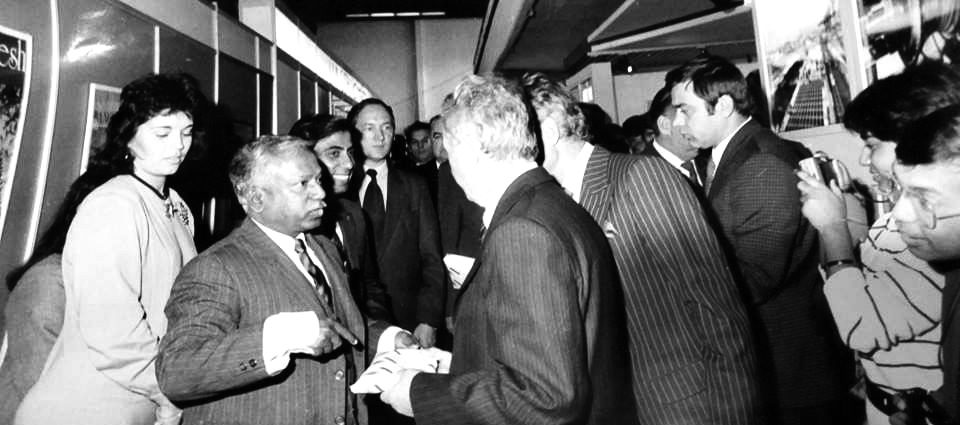
During my stay in External Publicity division I have had the privilege to produce an exhaustive booklet on war of liberation in Bangladesh because government decided to hold accountable 195 Pakistani soldiers for war crime in erstwhile East Pakistan. Bangladesh decided to frame a law in line with International convention, and an official announcement was made on 17 April, 1973, released through the press that trials shall be held in Dacca before special Tribunal, consisting of judges having status of Judges of the Supreme Court. The trial will be held in accordance with universally recognized judicial norms. Booklet called Operation: death and destruction giving vivid pictures of the massacres committed by Pakistan army and their collaborators. The booklet was withdrawn from circulation when Shimla accord decided to drop the trial. There are number of publications brought out by External Publicity Division to introduce Bangladesh abroad. Of them Geography on Bangladesh was published in collaboration with Geography department of Dacca University. Director General Humayun Kabir undertook a scheme to produce a film on liberation war, but could not succeed because of lack of funds. I was given an assignment to organize appointments of visiting foreign journalist and renowned writer as well for meeting with important personalities and Prime Minister of Bangladesh. During the visit of renowned writer -statesman, novelist- cum warrior of France Andre Malraux I accompanied him to Chittagong for a short visit where civic reception was arranged for him for his contribution towards war of liberation of Bangladesh. Industrialist A.K Khan hosted lunch for him and accompanied members at his Yacht in Kaptai Lake. I was with another celebrated writer Robert Payne for two weeks. During his stay as a guest of Ministry of Foreign affairs I chalked out a programe for him meeting important personalities of Bangladesh, including Prime Minister Sheikh Mujibur Rahman, Professor Nurullah of Dacca Ahsanullah Engineering college, who did video of massacres of students at Jagannath Hall of Dacca University, scientific officer of Atomic energy commission Anwar Hossain had made some recorded direction of Military junta to soldiers during nine months war of liberation , Deputy Chief of army Maj-General Ziaur Rahman. I took him to Kushtia to see the devastation which had been described as thousand Mylai by the World Bank. Robert Payne also visited cell in Dacca central jail where Sheikh Mujibur Rahman spent most of his prison term during Pakistani period. Robert Payne wrote a novel on Bangladesh on the basis of atrocities in erstwhile East Pakistan. The name of novel: The tortured and The damned, which was published in 1977. He also wrote a book : Massacres. on another occasion Deputy foreign editor of London Times Richard Harris was on a visit to Bangladesh. The foreign ministry had placed a request with Public Relations officer of the Prime Minister Abul Hashem to arrange an appointment with the Prime Minister for Richard Harris. Before departure of Richard Harris no response to fix up an appointment came from the Ganabhaban. I decided to take Richard Harris to Ganabhaban and enquired about the position from the PRO, but reply was negative. Having disappointed I rushed to the office of Aminul Haq Badsha, Assistant Public Relations officer, who was junior to me in the college. His reply was also negative indeed. I was shocked to see the development. While I was returning I met the Prime Minister on the way. Without hesitation I told him about the presence of Richard Harris, the Deputy Foreign Editor of London Times in Dacca. As of now no appointment had been fixed with you, Sir? The Prime Minister replied that nobody told him about Richard Harris. I was taken aback. Immediately, the Prime Minister told me that he was going to Gopalganj in Faridpur by helicopter and Richard Harris could join him during the trip. I ran to reach Richard Harris and told him about the proposal. Richard Harris accepted the proposal and I introduced him to the Prime Minister. Richard Harris had talks with the Prime Minister during the trip. Richard Harris had interesting discussion with Professor Abdur Razzak of Dacca University about Bangladesh and its future. I was the only spectator to the illuminating scholarly discussion.
(To be continued)

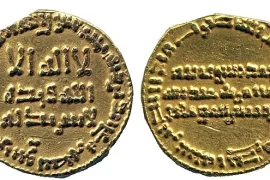
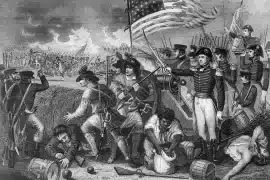
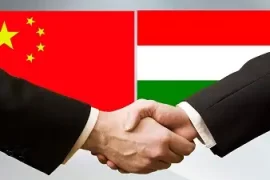
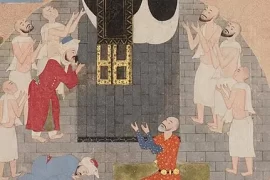
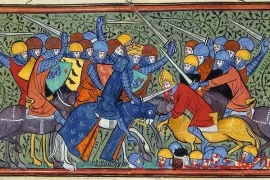
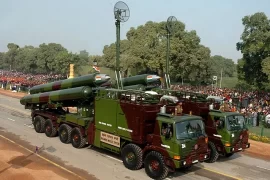
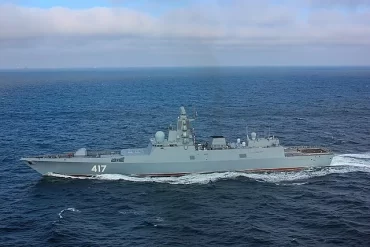
While browsing the internet, I accidentally bumped into this article and was shocked to read about Mohammad Amjad Hossain’s lies and fabrication about his posting in Kuala Lumpur. He was a junior officer, who did not belong to the diplomatic cadre. I do not recall that he was involved in any of the important visits or diplomatic activities while I was posted in Malaysia as First Secretary and Head of Chancery from 1977-79. I never knew that Mr. Hossain was ever given important tasks by the Ministry or that he had any reputation as a good officer. During my posting in Malaysia I practically shouldered multiple responsibilities of the High Commissioner as he was from the army and had little diplomatic experience. To my recollection, Mr.Hossain was a low-profile and timid officer and I never thought that he was cognizant of diplomatic norms and practices or that he had the ability to entertain properly as a diplomat. I am flabbergasted to read his boastful achievements, being a low level officer not belonging to the diplomatic cadre.
– Syed Noor Hossain, Former Ambassador